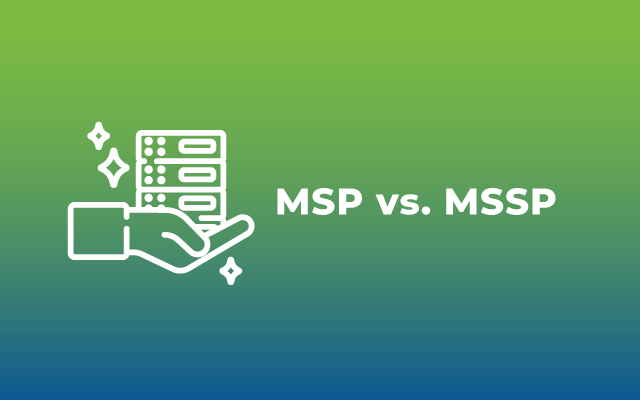Articles /
Understanding MSP vs. MSSP: A Deep Dive into IT Service Providers

The digital world is brimming with acronyms, and among the most frequently mentioned in IT circles are MSP and MSSP. Though they sound eerily similar, these terms signify different services. Dive with us as we demystify the difference between a Managed Service Provider (MSP) and a Managed Security Service Provider (MSSP) and illuminate how they are essential for today’s businesses.
MSP vs. MSSP: More Than Just Different Letters
At a quick glance, MSP and MSSP might seem interchangeable. However, their distinction lies in the scope of services they offer. While both are crucial to optimizing business operations, their primary focus and functions vary significantly.
What Exactly is an MSP (Managed Service Provider)?
Definition by Gartner: An MSP delivers essential IT services spanning network, application, infrastructure, and security. They provide these through continuous support and active administration, whether it’s on the client’s premises, their own data center, or even a third-party data center.
The Evolution of MSPs: The Dot Com boom introduced us to internet-driven businesses. This shift heralded the age of remotely managing and troubleshooting computer systems. Consequently, specific companies sprouted, offering services to manage IT frameworks for other businesses—aptly named Managed Services Providers. At the heart of an MSP’s operations is the Network Operations Center (NOC), which oversees all tasks.
In Layman’s Terms: Consider an MSP as your IT guardian angel working behind the scenes. They ensure that all tech infrastructures operate flawlessly, letting you channel your energies elsewhere. By partnering with an MSP, you’re investing in hassle-free IT maintenance, leaving mundane tasks like patch updates in capable hands.
Delving into MSSP (Managed Security Service Provider):
Definition by Gartner: An MSSP is a specialized entity that focuses on outsourced security service monitoring and management. This encompasses managing security devices, virtual private networks, vulnerability scans, and orchestrating endpoint detection and responses.
The Birth and Growth of MSSPs: As MSPs flourished, paving the way for seamless remote IT management, cyber adversaries saw opportunities. They began exploiting these channels for nefarious gains. Recognizing the risks, Internet service providers introduced managed firewall solutions. This marked the inception of managed security services. Today, an MSSP’s portfolio has evolved, boasting services like Vulnerability Assessment/Penetration Tests (VAPTs), Security Information/Event Management (SIEM), and non-stop Security Monitoring.
In Simpler Words: Imagine an MSSP as the fortress wall protecting your business castle. They’re the vigilant sentinels, ensuring that unwanted entities don’t breach your defenses. In today’s digital age, threats don’t just come in the form of downtimes or system crashes. Cyber adversaries lurk, ready to exploit vulnerabilities. Partnering with an MSSP means you’re safeguarding your business assets from potential cyber onslaughts.
Conclusion:
In the great debate of MSP vs. MSSP, it isn’t about which is better, but understanding their unique offerings. Both play pivotal roles in today’s business landscape, ensuring smooth IT operations and fortified security. Whether you’re looking to streamline IT processes or bolster security defenses, understanding the difference can empower you to make informed decisions.